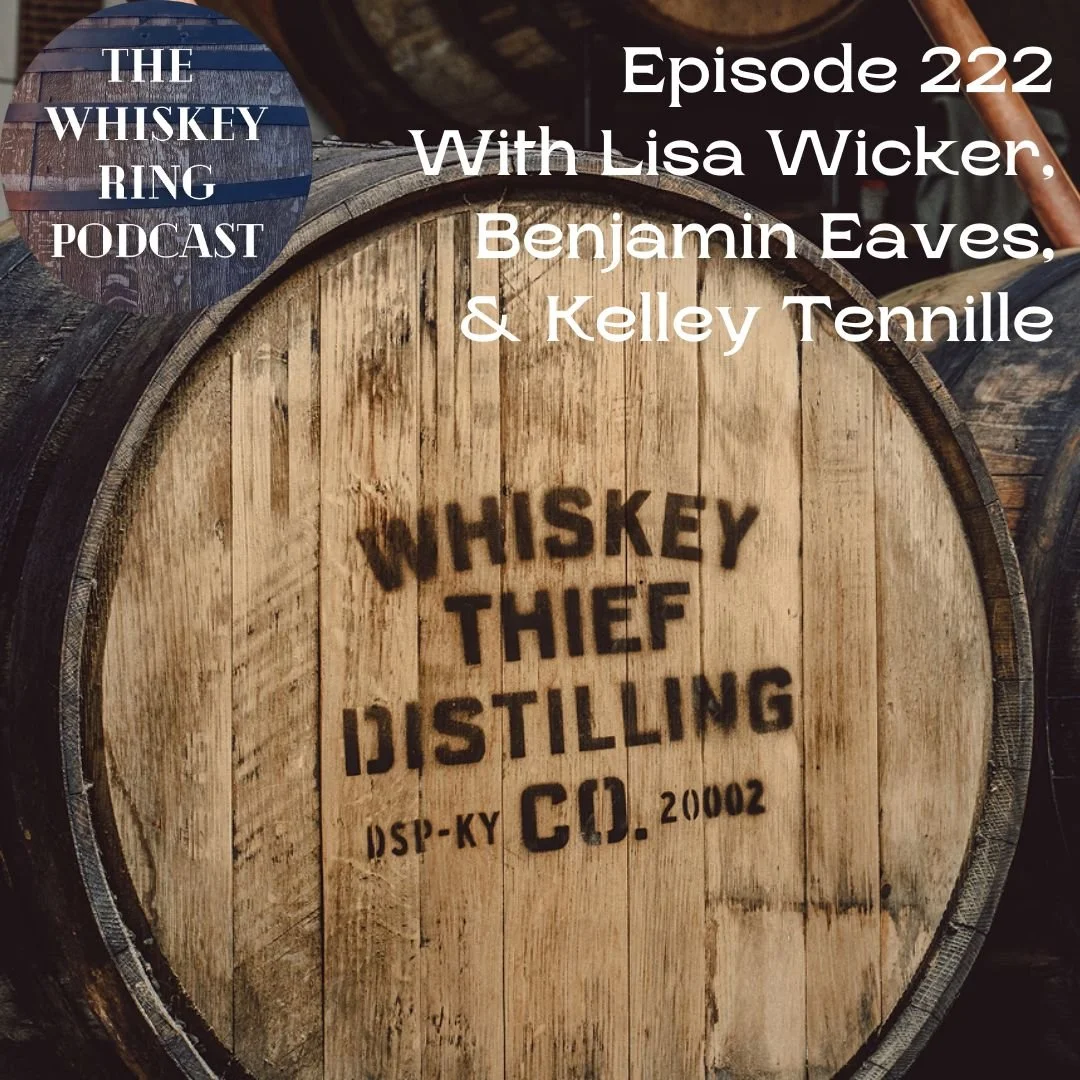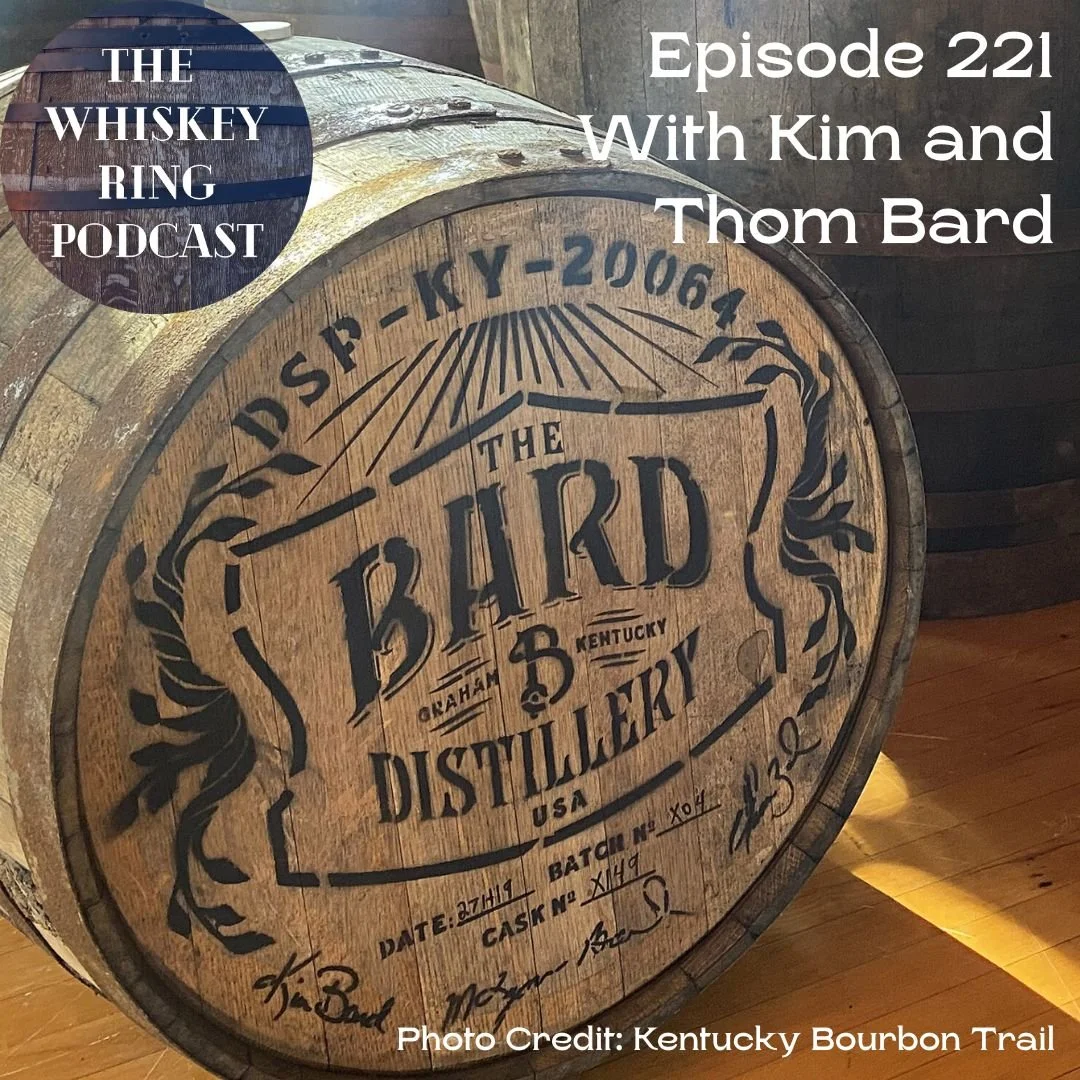White Peak Distillery with Max Vaughn Show Notes
Notes and Reviews for Whiskey Ring Podcast Episode 199: White Peak Distillery with Max Vaughn
On this episode of the Whiskey Ring Podcast, I sat down with Max Vaughan, co-founder of White Peak Distillery, to explore the remarkable journey of Derbyshire’s first legal whisky distillery.
As we’ve found previously with the rest of England, despite being bordered to the north and west (and east, if you count France) by distilling heavyweights, England itself doesn’t have much of a domestic distilling history. Instead, brewing often takes center stage, with many burgeoning English distilleries drawing inspiration (and sometimes more than that) from nearby breweries and maltsters.
Max’s passion for whisky was kindled early, thanks to his father’s membership in the Scotch Malt Whisky Society. Claire, Max’s co-founder and his wife, came along later, converted to whisky thanks to Max and his dad. Visits to distilleries and tastings of unique single cask whiskies left a lasting impression, but it wasn’t until about twelve years ago that the idea of starting a distillery took root.
Inspired by the story of an urban distillery in Battersea, London, Max and Claire began to envision creating a whisky distillery in their home county of Derbyshire. Side note, if that sounds familiar, that inspiration was from The London Distillery Company in its previous iteration; recent guest Matt McKay talked about the new iteration he is overseeing in Episode 194.
Despite having no professional background in drinks or spirits, Max and Claire spent years refining a business plan, making industry connections, and gradually building the confidence to take the leap. After several years of planning, the couple decided to pursue their dream, setting the stage for what would become White Peak Distillery.
The search for a distillery site was guided by three criteria: proximity to a river, a brownfield site with historical character, and a reasonable commute from home. The perfect location emerged in the form of a disused wire works factory on the banks of the River Derwent, adjacent to the ancient Shining Cliff woodland. The site, dormant since 1996, offered both the industrial heritage and the romantic riverside setting the Vaughans sought. Securing and renovating the site was a formidable challenge, especially on a modest budget of £1.6 million. The project required hands-on management, creative problem-solving, and the support of local stakeholders, including the UNESCO World Heritage site managers. The community’s enthusiasm for breathing new life into a historic landmark played a crucial role in overcoming obstacles.
Lacking direct experience in whisky production, Max adopted a collaborative approach, seeking advice from industry veterans and forging connections across the whisky world. One pivotal relationship was with Chip Tate, founder of Balcones Distillery in Texas, whose mentorship and hospitality in Waco helped shape White Peak’s early plans. From the outset, Max and Claire were determined not to simply replicate Scotch whisky in England. Instead, they drew inspiration from both the American craft distilling movement and the unique characteristics of their local environment. Their first major hire was a head distiller, who joined during the engineering phase, ensuring that production knowledge was embedded from the ground up.
White Peak Distillery’s branding reflects both its location and its respect for tradition. The distillery’s name references the southern half of the Peak District National Park, while its flagship whisky brand, Wire Works, pays homage to the site’s industrial past. The gin brand, Shining Cliff, is named after the nearby woodland, following the example of distilleries like Bruichladdich in keeping whisky and gin brands distinct. Interestingly, the first 100 casks of whisky were filled before the Wire Works brand name was finalized, a testament to the Vaughans’ focus on quality and provenance over marketing from the outset.
A defining feature of White Peak’s production is its partnership with Thornbridge Brewery, a renowned local brewer. Every Tuesday, the distillery receives fresh, live yeast from Thornbridge, a collaboration that required trust and has grown into a mutually beneficial relationship. The use of brewer’s yeast, along with experimental mash bills—including dark malt, chocolate malt, oats, and beech-smoked malt—demonstrates White Peak’s innovative spirit. The distillery also works with local farmers to source Chevalier barley, a heritage variety, and employs unique mashing and distillation techniques to highlight the grain’s character. These efforts result in a diverse range of spirits, from the core lightly peated single malt to unpeated expressions made with local barley.
White Peak’s house style is a lightly peated single malt, a rarity among English distilleries (possibly singular, not just rare!). About 80% of their spirit follows this profile, with the remainder exploring unpeated and experimental styles. The distillery’s commitment to local ingredients, traditional floor malting, and careful process adjustments has yielded whiskies that are both distinctive and rooted in place. Since its inception, White Peak has garnered local and international acclaim, winning awards and expanding its distribution across England, Scotland, and select export markets in Asia. The distillery’s visitor experience, or “cellar door,” remains its largest sales channel, drawing whisky enthusiasts and curious tourists alike to Derbyshire.
As White Peak approaches its tenth anniversary, Max and Claire are focused on building a legacy that honors the site’s industrial heritage and contributes to the region’s new distilling tradition. Their long-term vision is for Wire Works whisky to be celebrated a century from now, just as the original wire works factory is remembered today.










